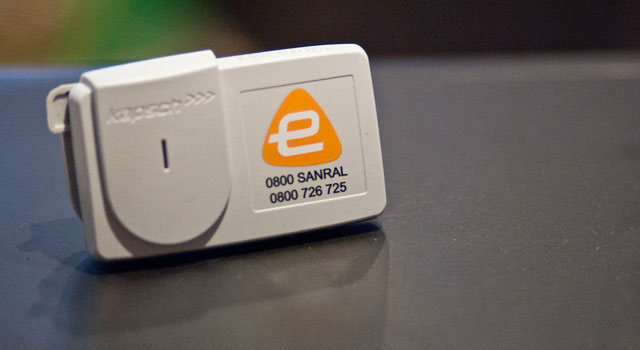
Roads agency Sanral appears unperturbed with paying over R50m/month to a global transport giant for collecting e-toll fees in Gauteng.
The Austrian conglomerate Kapsch Trafficom acquired full control of the e-tolls collections company Electronic Toll Collections (ETC) through a 100% stake in TMT Services & Supplies.
This after it bought the remaining 18% of shares following the divestment of the only black economic empowerment partner, Matemeku Investments. With a 51% shareholding, Matemeku was the main BEE shareholder in TMT, a level 2 broad-based BEE company.
Kapsch also gained full control of two other Cape Town-based firms, Berrydust 51 and Mobiserve, according to the latest financial report for the year ending March 2015/2016.
Kapsch, through TMT, won the R6,2bn tender from Sanral for the design and operation of the e-toll system in Gauteng in late 2009. However, in 2010 Matemeku chairman Moss Mashishi sold 57% of the company to Kapsch for more than R70m.
“After 13 years as shareholder in TMT, Matemeku Investments made a commercial decision to exit the investment,” Mashishi said.
Since Matemeku is a private company, Mashishi was not obliged to reveal how much the stake was sold for, but he said that the directors and shareholders of the company will decide how best to invest the money.
TMT said that Matemeku’s right to exercise an option to exit was agreed upon about six years ago “where the minority shareholders were granted a ‘put’ allowing them to exit at a fair market value”.
It said that TMT remains a level 2 BB-BEE company for the moment. “The next review cycle is approximately April 2017 by when ownership issues will be addressed.”
TMT has already initiated plans to develop a broader empowerment structure going forward. The company is looking at the various ownership options available, including staff participation.
“These options will include reviewing a combination of equity partners as well as staff participation. Preliminary discussions have been held with potential candidates but until the current transaction with Matemeku and the other minority shareholders is finalised no commitment will be given.”
Sanral spokesman Vusi Mona said the divestment has no bearing on toll operations because the roads agency did not enter into a contract with Kapsch.
“Sanral entered into a contract with ETC, which is owned by Kapsch and TMT, a South African company, following a tender process. The operations contract was awarded for an eight-year period.”
Mona emphasised that Sanral is committed to the implementation of government’s policies related to BEE and in turn expects the same from all its contractors.
“This contract includes various measurable targets and requirements around BBBEE scorecard goals, which include ownership, the subcontracting of work to SMMEs, and skills transfer.”
He said ETC’s performance is monitored and measured against said requirements, and this continues to be the case. “Ninety-nine percent of the people doing the operations, including management, are South Africans.”
Mona said ETC is paid about R54m/month and is compensation for services delivered in accordance with tendered tariffs.
“All operational costs are paid within South Africa; costs such as employee costs, administration costs, communication costs, banking fees, facilities (including maintenance and asset refresh), rates and taxes. All these are paid in the country to local service providers.”
Mona said there are many foreign-owned companies in South Africa and that it is important to distinguish what monies go offshore.
“South Africa is participating in the global economy, with South African companies doing business globally with the objective to make a profit. Similarly, international companies are tendering for work in South Africa.”
He said it is important to differentiate between revenue and profit. “It includes all costs associated with employee salaries, bank transaction costs, maintenance costs, telecommunications costs, postage costs, municipal rates and taxes.
“Only if a profit is made, is there a possibility that it may leave the country, governed by the Reserve Bank and tax regulations like is the case with any foreign company doing business in South Africa.”

